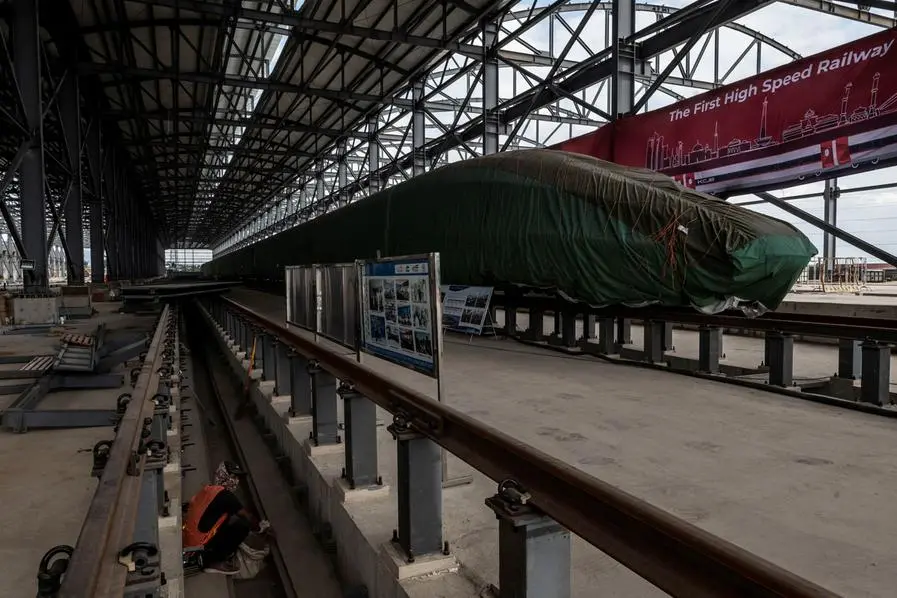PHOTO
China has vowed to maintain partnerships with Africa and the rest of the Global South to further its Belt and Road projects despite the shaky geopolitical order.
A spokesperson for the National People's Congress (NPC), China's top legislature, said on Tuesday that China will not abandon projects under the Belt and Road Initiative, seeing infrastructure investment as a way to end global poverty and tensions.
Lou Qinjian, the spokesperson for the third session of the 14th NPC said “world peace and development still face severe challenges," but China was committed to promote and accelerate “the implementation of the three global initiatives – namely the Global Development Initiative, the Global Security Initiative and the Global Civilisation Initiative.”He was speaking ahead of China's annual NPC, which brings together the legislature and the and the advisory body, the National Committee of the Chinese People's Political Consultative Conference (CPPCC).
The week-long meeting is attended by some 3,000 delegates from autonomous regions, provinces, municipalities and the armed forces.
This year’s meeting is expected to set China’s development agenda, including foreign policy and development priorities.
Under President Xi Jinping, Beijing has often seen economic development as a precursor to peace and security. In 2021, for example, Beijing launched a programme known as the Global Development Initiative, which it tied to the UN Sustainable Development Goals, and which aims to “revitalise global development partnership and promote stronger, greener and healthier global development,” according to a UN document.
Beijing, the official said, will continue to pursue a consensus-based approach to development, engaging only when invited and based on local decision makers.
Part of this initiative is also linked to the so-called Global Security Initiative, where China says the world should address security challenges with “dialogue over confrontation.”But China’s Belt and Road Initiative, launched a decade ago to build connective infrastructure to improve trade, has often been challenged, either by rivals in the West or by conflict.
In Africa, the initiative covers almost the entire continent, with the exception of eSwatini. It includes 12 countries in eastern Africa, including Kenya, Tanzania, Uganda, DR Congo, Ethiopia and Djibouti, and seeks to link ports, railways and road networks. But the region has been plagued by insecurity in recent years, posing a challenge to the projects.
Tanzania, Burundi sign deal with China to build nickel-carrying SGRAnd despite criticism of the debt generated by some of the projects, Mr Lou said China “is doing all it can to provide development assistance to more than 160 countries, partnering with over 150 countries and more than 30 international organisations to jointly build the Belt and Road Initiative.
”China still sees itself as a developing country, even though its economy is the second largest in the world. It is using this analogy to forge ties with the Global South – the countries in Africa, Asia and Latin America, whose economies are still developing.“China will always be a participant and advocate of South-South cooperation," he added. But he also noted that China will build strong ties with the developed world as well, as long as there is mutual respect.
© Copyright 2022 Nation Media Group. All Rights Reserved. Provided by SyndiGate Media Inc. (Syndigate.info).





















